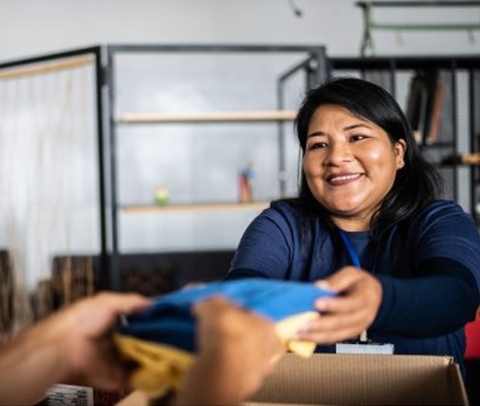Bethesda House

Since Our
Inception In 1992
Bethesda House has evolved from a small shelter for abused women and their
children to a well-known and respected agency providing a comprehensive system of professional
supports to diverse individuals dealing with all types of abuse and gender-based violence
including, but not limited to intimate partner violence, sexual assault, human trafficking,
familial abuse, cultural violence, and elder abuse.
- Located in Durham
- Pet friendly shelter
- Safe & Secure
- Support Programs
- 24-hour crisis line
We Work Hard to
keep Women Safe
Counselling
We help survivors receive the services they require to cope and move forward in
their lives.
Safety Planning
The shelter is a temporary place of safety with a plan to return to a safe living
environment.
Protection
Our accommodations are private, safe, and secure so women and their children can
feel safe.
Assistance
To emotionally prepare women for appointments, court dates, and important
meetings.
Pet Friendly
Our shelter is pet friendly for families so that you don't have to leave pets
behind.
Small Donations Make Bigger
Impact
Every dollar donated to Bethesda House goes towards helping and expanding
our ability to shelter and protect women and their children.
It is generous donors like you that really make a difference in the life of a woman who is trying to live a life free from fear and violence.
It is generous donors like you that really make a difference in the life of a woman who is trying to live a life free from fear and violence.
What Women Say About
Bethesda House
The violence and abuse I endured at the hands of my husband left me trapped and powerless. It took every ounce of courage I had to leave, but the moment I walked through the doors of Bethesda House, I knew my daughter and I were safe. I finally had hope. At Bethesda House, safety wasn't just a word, it was a promise they kept. The staff created a supportive environment that allowed us to heal and rebuild our lives. I was able to focus on my daughters well-being and my recovery, knowing that I would never be hurt again.
Bethesda House provided me with a way out from my trafficking situation. They helped me create a plan to leave and kept me safe when I was terrified for my life. I have suffered and found myself trapped and sexually exploited all over Durham Region. The staff helped me feel safe, and didn't judge me. They validated my experiences and gave me tools to re-build my self-esteem. They supported me with my nightmares and spent a lot of time with me when I couldn't sleep. I can't imagine where I would be without their support- thank you.
Bethesda House is more than a shelter, it is a home. I had to escape my family's home because they were abusing me and stealing my money, I went to Bethesda House. I felt safe for the first time in a long time. I was able to sleep, share my experience of being taken advantage of and hurt by my adult son, and learnt tools to move forward in my life. They helped me to relocate and I now live free and feel safe in my very own home.

0+
New women entering
our shelter per month
0+
Mothers and children entering
our shelter per month
0+
Calls per month to the
crisis support line
0+
Are turned away due to shelter capacity



